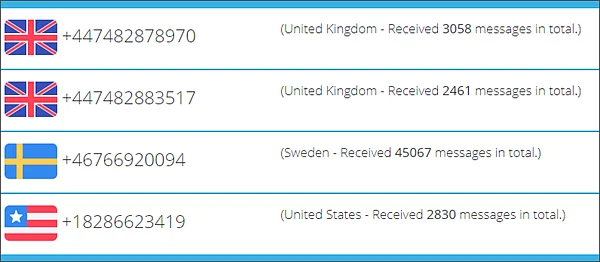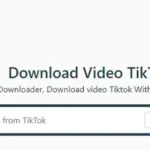The number 07442582917 (often formatted 07442 582917) is a UK mobile phone number currently associated with Vodafone Limited.
According to user-report tracking sites:
-
Who-Called.co.uk lists it under Vodafone, and notes that some users have reported automated / scam-style calls purportedly from “HMRC threatening punitive action.”
-
UnknownPhone.com shows that the number has been reported once, and that 9 calls have originated from it (as tracked by the site).
-
Slick.ly (a UK number directory) confirms it’s a UK mobile (Vodafone) number, but shows no strong verification or positive comments yet.
In summary, the number is a mobile line, under Vodafone’s assignment, and has drawn suspicion in user communities — especially for unsolicited and automated calling behavior.
User Reports & Red Flags: What People Say
Community feedback is one of the best indicators when a number behaves suspiciously. For 07442582917, the reports show common red flag patterns:
- Users have claimed that the caller pretends to be HMRC (Her Majesty’s Revenue & Customs), threatening punitive actions unless one “presses a button” or complies. That aligns with a common tax-themed scam format.
- Some reports describe automated calls with no human on the other line or calls that drop as soon as the user answers.
- Because the number is reported by multiple sources as “probable scam,” “automated,” or “harassment / nuisance,” it is listed among suspected scam / nuisance numbers on caller-reporting sites.
On Who-Called specifically:
“Automated call purporting to be from HMRC threatening punitive action. Press a button … probable scam. Now blocked.”
Thus, users treat the number with caution, often blocking it or reporting it as a scam attempt.
Scam Patterns & Tactics: How Numbers Like This Operate
The behavior reported for 07442582917 mirrors many known scam or nuisance call tactics. Some common strategies include:
1. Impersonation of Official Bodies (e.g. HMRC, Banks)
Scammers often spoof or pretend to be governmental or financial institutions to pressure victims via fear, urgency, or intimidation. The mention of HMRC is a classic example.
2. Automated / Robo Calls
Using robocall technology, calls are placed in bulk. When someone picks up, they may hear a pre-recorded message or be asked to press a key. Many such calls drop immediately if the user doesn’t respond.
3. Vishing / Voice Phishing
Once trust is gained (through impersonation or fear tactics), the fraudster may request personal data (banking info, National Insurance numbers) under false pretenses.
4. Threatening Language & Time Pressure
Scams often include threats (“you must respond or face legal consequences”) or a time constraint to push people into hasty decisions.
5. Callback Incentives or Callback Traps
Sometimes the call may try to trick the user into returning a call (potentially to a premium-rate number) or pressing a key that leads to further charges or surveillance.
Given these tactics, when a number like 07442582917 is reported in that vein, it is wise to proceed cautiously.
Risks & Consequences of Engaging
Answering or interacting with suspicious calls carries certain risks:
1. Personal Data Exposure
If a scammer persuades you to share personal or financial details (bank account, National Insurance Number, passwords), that information can be used for identity theft or fraud.
2. Financial Loss
Sometimes pressing the “wrong” button or being tricked into calling back could lead to connections to high-rate numbers or premium lines, incurring costs.
3. Persistent Harassment
Once your line is confirmed active, it may be marked for repeated scam / spam calling lists, leading to persistent nuisance calls.
4. Psychological Pressure
Scam calls often use stress, urgency, or fear to coerce victims. That can lead to poor judgment under duress.
5. Malware or Malicious Links
Though less common via voice calls, some calls might prompt you to visit a URL (sent via SMS) that installs malware or phishing pages.
Thus, treating suspicious numbers with suspicion is more than prudent — it’s protective.
What You Should Do: Verification & Protection Steps
If you receive a call from 07442582917 or any unfamiliar number, here are recommended steps:
A. Don’t Share Sensitive Info
Never give out your bank details, passwords, or official identifiers (NI, passport, etc.) to unsolicited callers.
B. Let the Call Go to Voicemail
If it’s genuinely important, the caller will likely leave a message. Scammers often avoid voicemails.
C. Use Number-Check / Reverse Lookup Tools
Search on sites like Who-Called, UnknownPhone, Tellows, etc. to see if others have flagged the number. (We’ve done that above.)
D. Block / Report the Number
Most smartphones let you block numbers. Also report to your phone provider or national anti-fraud authority (in the UK, Action Fraud or your telecom regulator).
E. Be Skeptical of Claims & Pressure
Scam calls often use urgency (“act now”), threats, or authority impersonation. Pause and verify independently (e.g. calling HMRC via their official published number) before responding.
F. Keep Records
Log time, date, what was said, and any number variants. If the calls recur, that info may help authorities or your provider.
By following these, you minimize risk and stay alert.
Conclusion: What We Know & What to Watch
Here is what is clear so far about 07442582917:
- It is a UK mobile number tied to Vodafone.
- Multiple users have reported it as a scam or automated call source, especially invoking HMRC impersonation.
- There is limited confirmation or positive identity behind the number — it lacks a clearly verified legitimate business name or owner.
Given this, treat calls from this number with caution. Don’t engage impulsively, and use verification and blocking steps outlined above.
If you like, I can check if UK regulatory databases (e.g. Ofcom, Action Fraud) have an official case lodged against 07442582917, and we can provide an updated risk score.








